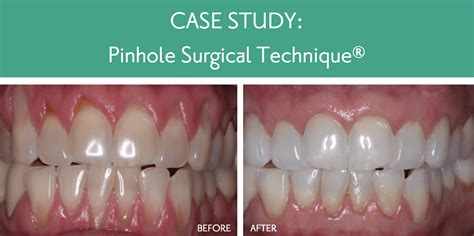How to Fix Gum Recession: A Comprehensive Guide
Gum recession, that frustrating retreat of gum tissue exposing more of your teeth, is a common dental problem affecting many. While it can be a cosmetic concern, it also exposes your teeth to increased sensitivity and potential decay. This comprehensive guide explores the causes, consequences, and importantly, the various ways to address gum recession.
Understanding Gum Recession: Causes and Consequences
Before we dive into solutions, understanding the root causes is crucial. Several factors contribute to gum recession:
Major Causes of Gum Recession:
- Aggressive Brushing: Scrubbing your teeth too hard with a hard-bristled toothbrush is a major culprit.
- Gum Disease (Periodontitis): This bacterial infection damages the tissues supporting your teeth, leading to significant gum recession.
- Genetics: Some individuals are genetically predisposed to gum recession, regardless of their brushing habits.
- Teeth Grinding (Bruxism): The constant pressure from grinding can wear away gum tissue.
- Hormonal Changes: Fluctuations in hormone levels, particularly during pregnancy, can increase susceptibility to gum recession.
- Improper Flossing: Using improper flossing techniques can damage gums.
- Piercings: Oral piercings, especially those near the gum line, can irritate and damage the gum tissue.
Consequences of Untreated Gum Recession:
- Tooth Sensitivity: Exposed tooth roots are highly sensitive to temperature changes and sweets.
- Tooth Decay: Receding gums leave the roots vulnerable to decay.
- Loose Teeth: Severe gum recession weakens the support structure of your teeth, leading to loosening and potential loss.
- Bad Breath: Bacteria can accumulate in the exposed root surfaces, causing halitosis.
- Aesthetics: Receding gums can significantly impact your smile's appearance.
How to Treat and Manage Gum Recession
Treatment options for gum recession depend on the severity and underlying cause. Here are some common approaches:
Non-Surgical Treatments:
- Improved Oral Hygiene: This is paramount. Use a soft-bristled toothbrush and gentle brushing techniques. Floss daily with proper technique.
- Professional Cleaning: Regular dental cleanings remove plaque and tartar buildup, reducing gum inflammation.
- Antibiotics: For cases related to gum disease, your dentist may prescribe antibiotics to combat the infection.
- Prescription Mouthwash: Anti-gingivitis mouthwashes can help reduce inflammation and plaque.
Surgical Treatments:
For more severe gum recession, surgical interventions might be necessary:
- Gum Grafting: This involves taking tissue from another area of the mouth (often the palate) and grafting it onto the receding gum line. Different types of gum grafting procedures exist, each tailored to specific needs.
- Connective Tissue Graft: This involves taking tissue from beneath the gum line to replace lost gum tissue.
- Free Gingival Graft: This utilizes a graft from the palate to cover the exposed root.
- Pedicle Graft: This uses a flap of gum tissue from a nearby area, leaving it partially attached to its original location.
- Guided Tissue Regeneration (GTR): This technique uses a special membrane to encourage the regrowth of gum tissue and bone.
Preventing Further Gum Recession
Prevention is key! Here are some tips to minimize your risk:
- Gentle Brushing: Use a soft-bristled toothbrush and brush gently, in small circular motions.
- Proper Flossing: Floss daily to remove plaque and food particles from between your teeth.
- Regular Dental Checkups: Schedule regular checkups and professional cleanings.
- Quit Smoking: Smoking significantly increases the risk of gum disease and recession.
- Manage Stress: Stress can exacerbate gum disease.
- Healthy Diet: A balanced diet rich in vitamins and minerals supports healthy gums.
Seeking Professional Help
This information is for educational purposes only and should not be considered a substitute for professional dental advice. If you're experiencing gum recession, it's crucial to consult a dentist or periodontist for a proper diagnosis and treatment plan. They can assess the severity of your recession and recommend the most appropriate course of action. Early intervention is vital to prevent further complications.
